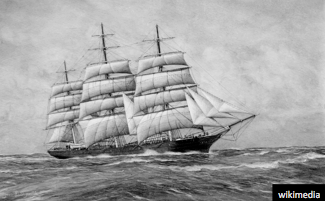 Jennifer Lawrence in real life is quirky and animated. However, Lawrence's Katniss Everdeen in Catching Fire is much more like Keanu Reeves's Neo (The Matrix) than the real bubbly Jennifer Lawrence. The Katniss character is simple, limited to few specific but amazing facial expressions. Why make such an animate actress so one-dimensional?
Jennifer Lawrence in real life is quirky and animated. However, Lawrence's Katniss Everdeen in Catching Fire is much more like Keanu Reeves's Neo (The Matrix) than the real bubbly Jennifer Lawrence. The Katniss character is simple, limited to few specific but amazing facial expressions. Why make such an animate actress so one-dimensional?
Because Katniss is our vessel.
What is a vessel?
A vessel is a character in a movie that the audience can enter through. Every big blockbuster book or movie has a vessel: Katniss, Neo, Luke Skywalker, Harry Potter, Bruce Wayne, Will Turner, all the way back to Odysseus, and yes even and especially, Twilight's Bella Swan. These characters are simple people with simple goals - stay alive, protect Gotham, get the girl, or beat the bad guy. Most of them are truly awesome, but also truly simple.
These characters are so general that nearly any of us can relate through them. Indeed, psychological research shows how small differences between ourselves and others can derail how we relate to other people. Thus maintaining high similarity is important for the wonderful feeling of narrative transportation: the feeling of being lost in imagination and in a suspension of reality.
The vessel must be simple. Contrast Lawrence's Katniss to Woody Harrelsons's Haymitch. Haymitch is to Katniss what Pirates of the Caribbean's Captain Jack is to Will Turner. He's complicated, lovably dislikable, and has all the best lines. But he is not a good narrative entry point for most audience members. We need Katniss, we need Will, just as we need human companions in Doctor Who and Watson in Sherlock.
What do vessels make us feel?
When it comes to mass appealing stories, we need a likable person to root for and experience the storyline through. With some niche darker movies the format may be different. But sci-fi blockbusters are about fulfilling fantasies -- and fantasies need a vessel.
Cracked.com recently examined the vessel theory in a quite crude, though intellectually stimulating, video. They explained:
"Ever since Star Wars, we've increasingly gone more and more towards movies that convince us that we are secretly more powerful and more interesting than the world lets on. We can not get enough of that story!"
Katniss is a normal person whose specialness is revealed through her actions. Luke Skywalker is a normal, angsty teenager who finds out he's a Jedi. Bella Swan is the most generic book nerd ever, who finds out she's the only person in the world that a vampire can't read the mind of.
Deep down, most of us believe we are special and we are just waiting for our "shot at the night" as The Killers put it. It's a fundamental aspect of our identity, and something we need to maintain and feel. That's why teenagers decorate their binders, middle age men purchase sports cars, and why we go see these movies again and again.
We all want to feel special and unique. And we all believe that if we just had the chance, we could save the day, beat the bad guy, get the girl, or be a great cultural leader. Vessels allow us to vicariously feel those things.
Scientific research shows how strong these vicarious experiences can be. We have neurons in our brain that are dedicated to mirroring and mimicking others' actions and emotions. The moods of others are contagious and spread to us automatically. This is especially true for people who are similar to us. When others are similar to us, we literally feel their experiences. When they do something amazing (even in fiction) we feel amazing and it fills us with the belief that we can also do those things.
Katniss Everdeen, like Neo, can be nearly everyone's mirror image. But she is the idealized mirror image. She's who we want to be. And when we go to watch Catching Fire for two hours we feel like we are who we want to be. There's maybe no greater power in storytelling than a vessel experience like that.
Are vessel stories good for us?
With every great vessel story comes a great responsibility for its viewers. When the lights come on in the theater, will we try to become our inner Katniss or will we escape into another vicarious narrative? Will we go home and pretend to be Batman on X-Box or live more through Katniss in the next Hunger Games book? Or will we maybe start writing that novel we've been meaning to, train for that dream job, or try extra hard on that homework assignment?
Vessel stories can be inspiring but they can also intoxicate us, leading us into a never-ending loop. The movie convinces us that we are special, but then we don't do anything to feel special. Wanting to feel special but not actually feeling it, we end up craving vessel movies even more. So to meet our unmet fantasies we go to another vessel movie and the cycle continues to build.
Troy Campbell is a consumer psychology researcher at Duke University. If you liked this article you may be interested in his other psychological takes on pop/nerd culture topics such as Star Wars, Batman, and Pacific Rim.